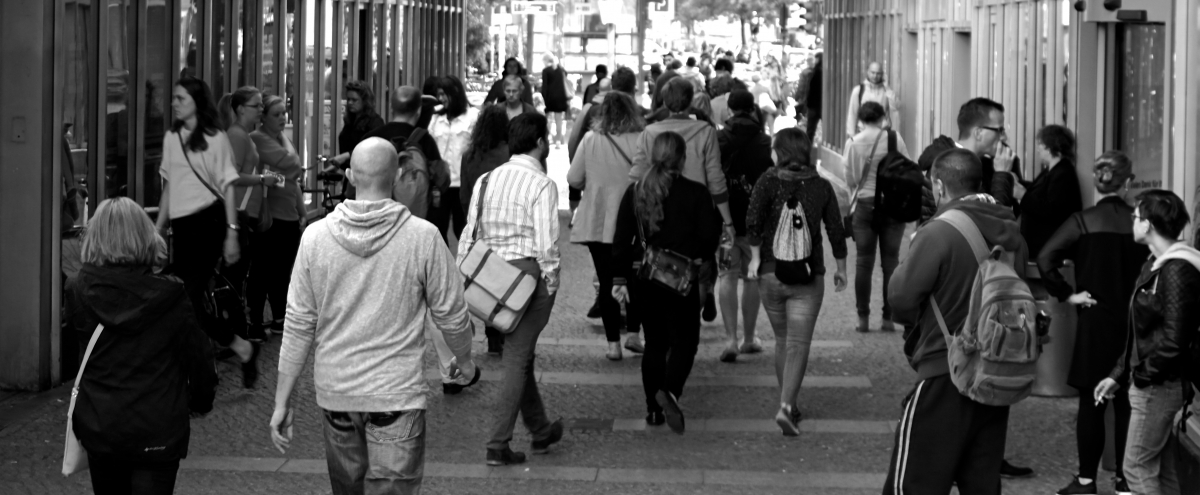Are we all jerks? Why nobody helps when surrounded by others
People are not likely to help when faced with an emergency. Are they all heartless or is something else going on? Science reveals that we can explain this lack of helping behavior by the Bystander effect and that there are ways to decrease this effect.
It was a busy Monday night in Café Moto in Williamsburg, Brooklyn. Cars were passing by and more guests entered the restaurant. The restaurant seats 35 people, but it was more crowded than that. The guests were enjoying their dinner in the vintage style restaurant, and the lamb ribs, mussels, and fresh baked cake were particularly popular. Whenever a train passed by, the volume of conversations rose.
Then something remarkable happened, people heard a harsh sound through the whole restaurant. The waitress later declared that she heard something like a firecracker, but she was too busy serving food to stop and wonder where the sound came from. A man at the bar turned to a stranger beside him, the bass player. “That”, he said, “sounded like gunshots”. The bass player agreed. People knew something was wrong, but nobody in the restaurant responded; nobody screamed and nobody ran towards or away from the window facing the street. A man saw something out of the corner of his eye and looked in time to see a man hurrying past, clutching his leg. Ms. Dobson, who performs weekly in the restaurant, picked up her guitar and started playing again. She could not believe what she saw a few moments later; the streets were filled with ambulances, and lights were everywhere. Several groups of people stood in huddles watching the scene. The police cordoned off the area with yellow tape. Officers found two shell casings from a nine millimeter pistol.
It is obvious that no firecrackers were involved. A fight broke out in front of the bar and got out of hand in the middle of the crowd of passengers who had just arrived by train. One of the passengers was a ten-year-old boy; he became a victim for being in the wrong place at the wrong time. The people in the bar were right; something was wrong -very wrong. A boy was shot and nobody responded.
To most of us, it seems bizarre that none of the people present responded. But this is not an exceptional event, more situations are known where people were robbed, abused, and even murdered in the presence of others. Is it true that these bystanders have a lack of empathy or are they just jerks? Probably they are just people like you and me. Psychologists know that there is another reason for this kind of phenomenon: The bystander effect.
The Bystander Effect
The bystander effect refers to the fact that people are less likely to help in an emergency when more people are nearby. A classic study shows and explains this effect. Participants were asked to sit down in individual cubicles and could communicate with other subjects over an intercom system. There was actually only one real participant in the study; the other participants were prerecorded voices, including one person that had a seizure. The researchers manipulated the size of the discussion groups; some discussion groups consisted of only the participant and the ‘victim’, whereas others consisted of these two with a third person (the perceived bystander), or with four perceived bystanders (Darley and Latané, 1968).
After a few minutes of discussion, the real participant heard through the intercom that the other participant was having an epileptic seizure. Now the question is; will the real participant help by summoning the experimenter or will he or she simply sit and do nothing? In the non- bystander group most people (85%) helped, in the group with one bystander 62% helped, and in the group with four bystanders only a devastating 31% reported the emergency. Darley and Latané (1968) concluded from this experiment that an individual’s likelihood to help decreases when there are more people around. This could also be a reason for the fact that nobody helped in Café Moto. Yet, the questions remains, why does the number of bystanders influence the helping behavior of people?



From the editors
Janneke Schilder’s article managed to fully engage me in the complexities surrounding the bystander effect. There’s good reason why it has the most views of all the articles on our new website! Janneke does not just provide an overview of the bystander effect, but asks the fundamental question: what can we do about it?
Of all the ways to mitigate the bystander effect, one in particular captured my attention. Beaman and colleagues (1978), mentioned above, presented teaching material on the bystander effect to undergraduate students. At a later date, these students were called into the lab for seemingly unrelated studies. The students who attended the bystander effect lectures were much more likely to help the victim of a bicycle accident (Study 1) and a man fallen down on the institution's corridors (Study 2). In fact, in the first study, 67% of students who had been taught about the effect helped, compared to only 27% in the control group. The reasoning behind these results is that participants who learned about the bystander effect knew others around them will be unlikely to help, therefore they knew it was their responsibility to intervene in an emergency situation.
This got me thinking about whether communicating the bystander effect in our InMind Magazine might have any effect on our readers. What do you think? Do you think reading about the effect will make people more likely to help in emergency situations?
Before you answer (and I do hope some of you will), I will leave you with one more thought. Beaman and colleagues were inspired to carry out the study above by Kenneth Gergen’s 1973 article ‘Psychology as history’, an article that significantly shook the social psychology field at the time. Among other ideas, he proposed that by communicating research about psychological effects, psychologists will alter people’s behaviour, and therefore those psychological laws that we communicate will stop applying to this changed public. Learning about obedience will make us less obedient, about bystanders less of a bystander, to the point that the laws we learned about do not reflect people’s behaviour anymore. What do you think of that idea?
Does reading of bystanders make you less of a bystander? And could this have the potential to change the laws of helping behaviour as we know them? Don’t be a bystander, pitch in to the conversation!
Diana OnuAssociate Editor